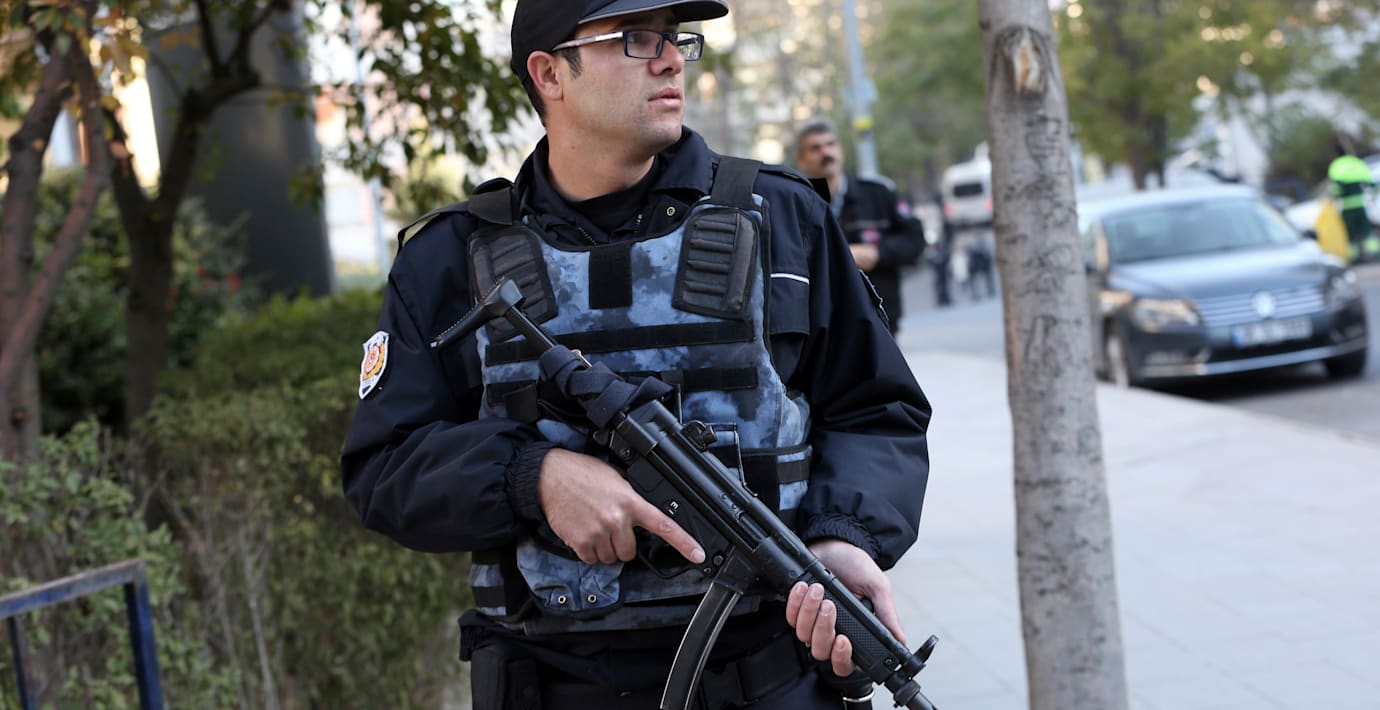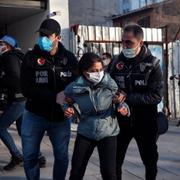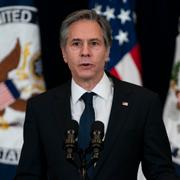
Hundratals gripna i Turkiet för misstänkt PKK-samröre
Fler än 500 personer har gripits i Turkiet, misstänkta för samröre med den terrorstämplade kurdiska PKK-gerillan, rapporterar den statliga nyhetsbyrån Anatolia. Bland de gripna finns ledande PKK-medlemmar, enligt byrån.
Räder genomfördes i bland annat Istanbul och Izmir, men också på andra håll i landet. I Gaziantep greps 45 personer, varav flera tillhör oppositionspartiet HDP, enligt provinsguvernören. Regeringen anklagar HDP för att vara PKK:s politiska gren.
bakgrund
PKK
Wikipedia (en)
The Kurdistan Workers' Party or PKK (Kurdish: Partiya Karkerên Kurdistanê) is a left-wing organization based in Turkey and Iraq. Since 1984 the PKK has waged an armed struggle against the Turkish state for equal rights and self-determination for the Kurds in Turkey, who comprise between 18% and 25% of the population and have been subjected to repression for decades. The group was founded in 1978 in the village of Fis (near Lice) by a group of Kurdish students led by Abdullah Öcalan. The PKK's ideology was originally a fusion of revolutionary socialism and Kurdish nationalism, seeking the foundation of an independent, Marxist–Leninist state in the region, which was to be known as Kurdistan.
However, since his capture and imprisonment in 1999, the leader of the PKK, Abdullah Öcalan, has completely abandoned Marxism–Leninism, leading the party to adopt his new political platform of "Democratic Confederalism" (influenced strongly by the libertarian socialist philosophy of communalism) while ceasing its official calls for the establishment of a fully independent country. In May 2007, former members of the PKK helped form the Kurdistan Communities Union (KCK), an umbrella organisation of Kurds from Turkey, Iran, Iraq, and Syria. On 20 March 2005, Öcalan described the need for a democratic confederalism and went on to say:
The democratic confederalism of Kurdistan is not a State system, it is the democratic system of a people without a State... It takes its power from the people and adapts to reach self-sufficiency in every field including the economy.
In 2013, the PKK declared a ceasefire agreement and began slowly withdrawing its fighters to the Kurdistan Region of northern Iraq as part of the "solution process" between the Turkish state and the long-disenfranchised Kurdish minority. In July 2015, the PKK announced that a ceasefire was over and said that Ankara had welched on its promises regarding the Kurdish issue.
In August 2015, the PKK announced that they would accept a ceasefire with Turkey under US guarantees.
The PKK is listed as a terrorist organization by several states and organizations, including the North Atlantic Treaty Organization (NATO), the United States and the European Union. However, the United Nations and countries such as Switzerland, China, India, Russia and Egypt have not designated the PKK as a terrorist organization.
bakgrund
HDP
Wikipedia (en)
The Peoples' Democratic Party (Turkish: Halkların Demokratik Partisi (HDP), Kurdish: Partiya Demokratîk a Gelan), or Democratic Party of the Peoples, is a pro-minority political party in Turkey. Generally left-wing, the party places a strong emphasis on participatory democracy, feminism, minority rights, and egalitarianism. It is an associate member of the Party of European Socialists (PES) and consultative member of the Socialist International.
Aspiring to fundamentally challenge the existing Turkish-Kurdish divide and other existing parameters in Turkish politics, the HDP was founded in 2012 as the political wing of the Peoples' Democratic Congress, a union of numerous left-wing movements that had previously fielded candidates as independents to bypass the 10% election threshold. It is in alliance with the Kurdish Democratic Regions Party (DBP), often described as the HDP's fraternal party. While the HDP's claims that it represents the whole of Turkey, critics have accused the party of mainly representing the interests of the Kurdish minority in south-eastern Turkey, where the party polls the highest. From 2013 to 2015, the HDP participated in peace negotiations with the Turkish government on behalf of the Kurdistan Workers' Party (PKK) separatist militant organisation, with which it is accused of having direct links.
The party operates a co-presidential system of leadership, with one chairman and one chairwoman. As of 22 June 2014, these chairpersons are Selahattin Demirtaş and Figen Yüksekdağ respectively. In the 2014 presidential election, the party put forward its chairman, Selahattin Demirtaş, who won 9.77% of the vote. Despite concerns that it could fall short of the 10% election threshold, the party put forward party-lists instead of running independent candidates the subsequent June 2015 general election. Exceeding expectations, it polled at 13.12%, becoming the third largest parliamentary group. The party briefly participated in the interim election government formed by AKP Prime Minister Ahmet Davutoğlu on 28 August 2015, with HDP MPs Ali Haydar Konca and Müslüm Doğan becoming the Minister of European Union Affairs and the Minister of Development respectively.
Omni är politiskt obundna och oberoende. Vi strävar efter att ge fler perspektiv på nyheterna. Har du frågor eller synpunkter kring vår rapportering? Kontakta redaktionen



